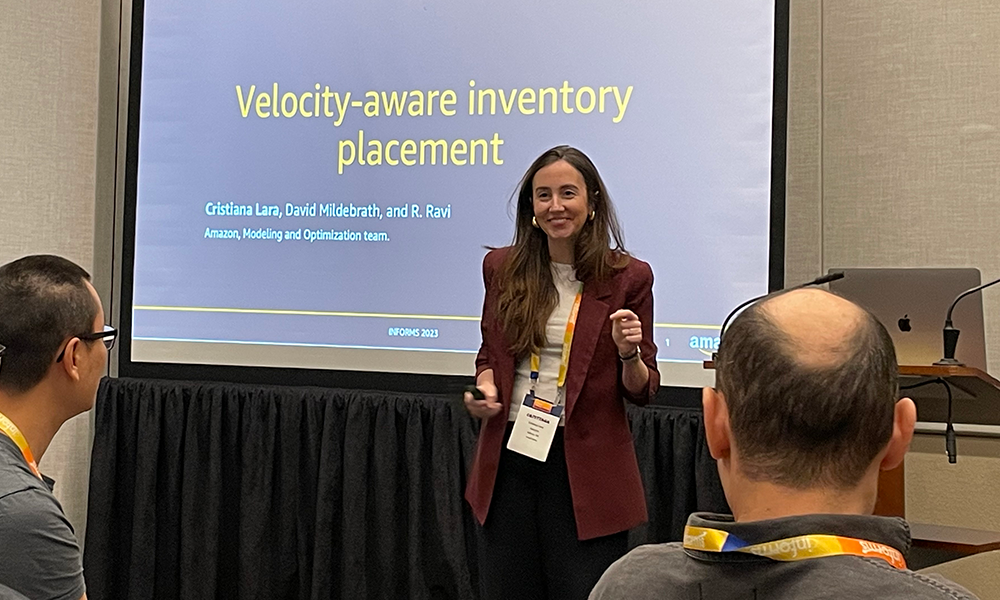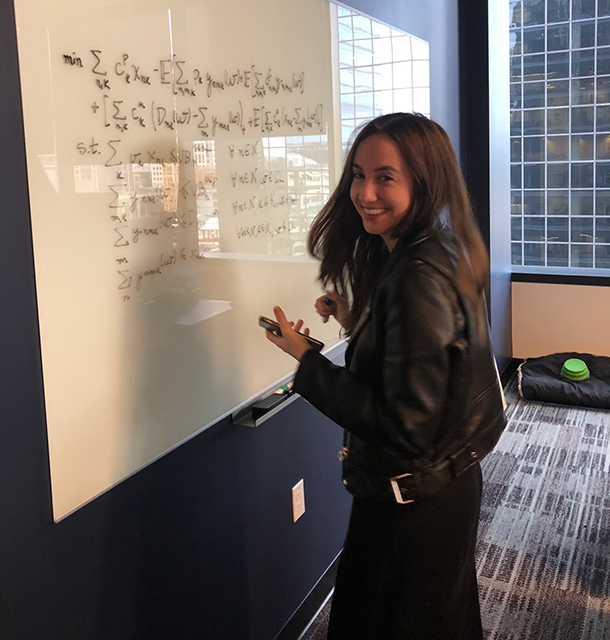Alum spotlight: Cristiana Lara
Sarah Maenner
Jun 17, 2024

Source: Cristiana Lara
When Cristiana Lara ('19) was accepted to Carnegie Mellon University to pursue her Ph.D. in chemical engineering, the choice to attend was "a no-brainer." CMU has "one of the best, if not the best, departments for process systems engineering," she says.
Prior to attending Carnegie Mellon, she received her bachelor's degree in chemical engineering from the Federal University of Rio in Brazil and studied abroad in North Carolina, where she experienced her first exposure to research in the US.
Despite having no background in optimization research, she was fascinated when she discovered Ignacio Grossmann's work. He became the advisor for her research projects. In one, she sought to optimize the use of renewable power plants. Renewable energy is intermittent and so must be supplemented with energy sources such as coal, gas, or nuclear at times when the sun is not shining or wind isn't blowing. "We can't get rid of every single coal, natural gas, or nuclear plant and just have wind and solar," she explains. "You need enough of those reliable sources to compensate for when the other intermittent sources go up and down." In the second project, she considered ways to optimize distributed versus centralized manufacturing to balance supply and demand.
She began applying the techniques she developed during her studies in an internship at Amazon, which led to a full-time position. She now works on Amazon's supply chain as a senior research scientist, optimizing the transport network infrastructure so that products can be shipped efficiently from warehouses to customers. "The big question when we're trying to design these networks is how do we do it such that the transportation is cheaper and, more importantly, faster," she says.

Source: Cristiana Lara
Despite not working in what many would consider traditional chemical engineering, the skills she learned in her education at CMU form the core of what she does. Chemical engineers, she says, thrive in this field because they are trained to model processes and think in terms of mass balances. These thought processes are useful to her when it comes to conceptualizing network optimization problems. In addition, she has found the soft skills from her Ph.D., such as writing technical documents and presenting at conferences, to be invaluable to her ability to speak to others and convince them of a mental model.
Lara recently received the inaugural INFORMS Early Career Practitioner Award in honor of her contributions to operations research and analytics in industry. The INFORMS award is a testament to her hard work and to the potential of her career direction.
Her work demonstrates the need for students with chemical engineering training—even in places where that is not obvious at first. There is a path for students who are not interested in pursuing a traditional route into academia and research. Even Lara herself did not originally envision attaining a Ph.D. But now, she enjoys the connection between business, supply chains, and modeling that her work offers.
When people think of academia versus industry, it's very binary. I strongly believe that it's actually a spectrum.
Cristiana Lara, Senior Research Scientist, Amazon
She also believes that an exchange between academia and industry enriches both environments. She tries to stay engaged with the academic community and is still in contact with her friends from CMU, several of whom have gone on to become faculty in academia. They have invited her to give guest lectures to their classes, and she can bring their expertise back to Amazon.
"When people think of academia versus industry, it's very binary. What I strongly believe is that it's actually a spectrum, and you don't need to be one way or the other," she says "You can be somewhere in between. This is how I've tried to shape my career."
